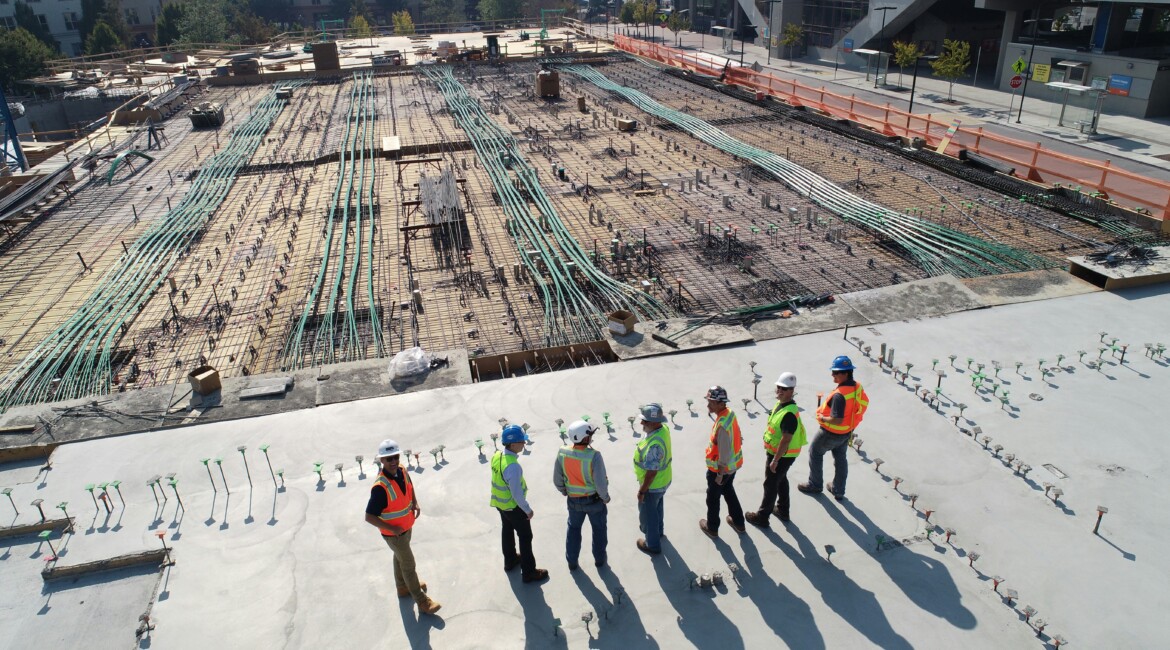
Construction Contracts: NEC And JCT Contracts

What are they and what to do when things go wrong
According to the office of National Statistics, in 2022 alone, over £80 million worth of new construction orders were agreed in the UK. This represented significant growth in the sector compared to previous years, and it is expected that new contracts in 2024 will exceed this figure considerably. From the outset of any construction project, determining which building contract to use is therefore of fundamental importance.
In the UK, there are two contract frameworks which are frequently used, namely, the JCT (Joint Contracts Tribunal) and the NEC (New Engineering Contract). These differing contracts are designed to afford clarity and guidance for construction projects, however, there are certain significant differences between the two contractual frameworks.
This article explores the benefits, differences, and dispute resolution procedures associated with NEC and JCT contracts in the fast-moving world of construction.
Exploring NEC Contracts: Modernity, Adaptability, and Communication
NEC contracts are considered a modern alternative to construction contracts used in the past.
Introduced in 1993, NEC contracts are often used for larger, more complex projects, such as public sector projects or those requiring complex infrastructure construction. Since its introduction in the 1990s, NEC contracts have been modified a variety of times and in 2017, the latest iteration of the contract framework was introduced (the NEC4).
At the heart of the NEC contract framework lies communication and adaptability – NEC contracts encourage, and in fact require, open communication between the parties of a project. Additionally, risk allocation and flexibility are considered part of the NECs core contract principles.
NEC contracts are therefore designed to be flexible by nature, with the prescribed contract templates using clear and unambiguous language in defining responsibilities of the parties, as well as the sharing of risk. This in turn helps reduce the risk of the contract being misinterpreted, ensuring contracts are delivered in a timely and cost-effective manner.
Additionally, NEC contracts place an emphasis on the goals of a certain defined project, as opposed to setting out precise details of how the work is to be completed. In complex construction projects, there will often be a need for collaboration and increased communication between the parties which forms part of the NEC’s core framework.
Advantages of JCT Contracts: Stability and Standardisation
In comparison, JCT contracts have been in use since their introduction in 1931, although the term JCT was only adopted in the late 1970s. JCT contracts are known within the construction industry for their prescriptive approach and standardised contractual templates.
By using standard templates, roles and responsibilities of the parties are clearly defined and more risk is apportioned to the contractor completing the project. The standardisation of JCT contracts provides stability and a degree of certainty for straightforward projects within the construction industry. Since less of an emphasis is placed on contract management and administration, JCT contracts are considered user friendly for both commercial and residential construction projects.
It is also worth noting that JCT contracts often place an emphasis on the role of the architect or engineer in overseeing the project and ensuring that it is delivered on time and within budget.
Within the industry, JCT contracts are considered user-friendly for both residential and residential construction projects. The prescriptive approach of the JCT’s contract templates usually allows for a streamlined processes and reduces the emphasis on extensive contract management and administration. This user-friendly nature often contributes to efficient dispute resolution and overall good project management.
Dispute Resolution Procedures: What to do when things go wrong
Due to the complex nature of most construction projects, disagreements between contracting parties are all too common. Disputes may arise, among other things, in relation to time-frames for completion, materials used, quality of work or payments due.
NEC Contracts: Early Warnings and Alternatives:
Thankfully, both NEC and JCT contracts contain mechanisms to ensure that any disagreements can be dealt with by following dispute resolution procedures. However, there are key differences between both contract frameworks and the conflict resolution mechanisms they encourage.
For NEC contracts, one of the key dispute resolution procedures are “early warnings”. Early warnings encourage the parties to identify and raise any issues which may potentially impact the project. The NEC encourages parties to provide early warnings in relation to any aspect that may affect the completion date, quality of work or the total cost agreed between the parties.
Embracing Alternative Dispute Resolution (ADR):
NEC contracts often advocate for mediation or other alternative dispute resolution methods before the parties resort to formal legal proceedings. Where the disagreement cannot be resolved, the NEC framework contains provisions requiring the parties to consider mediation or adjudication. Adjudication under the NEC will involve an independent adjudicator being appointed to make a decision around a specific issue within a specified timeframe. This allows for some disputes to be resolved quickly. Should adjudication (or indeed mediation) of the dispute be unsuccessful, litigation may be necessary.
JCT Contracts: Negotiation and Expert Determination
In contrast with the dispute mechanisms of the NEC, JCT contracts encourage open negotiation as a first step to resolving an issue between the parties, with mediation and adjudication as possible alternatives. Some JCT contracts may also state that an expert’s determination may be needed to settle a disagreement. This can either be one expert, or, a panel of experts on a Dispute Resolution Boards (DRBs). Often, the contract itself will state which procedures should be engaged when a dispute arises.
As a final resort, if the parties still cannot resolve their dispute, litigation may be the only alternative available.
How we can help
The choice between JCT and NEC contracts can significantly impact construction projects, influencing how communication, adaptability, and dispute resolution are approached. Ultimately, selecting the right framework depends on the specific needs and nuances of each project. Understanding the unique benefits and differences of both types of contracts is therefore essential for effective project management in the construction industry.
Here at the Jonathan Lea Network, we are well placed to assist with any construction disputes that may arise, either in connection with residential or commercial building projects. If you require advice in relation to a construction project, we would be more than happy to advise and guide you. We have a wealth of experience in advising clients on construction contracts from their outset, as well as assisting when things don’t quite go according to plan.
If you would like to discuss a new or existing construction contract, we offer a no-cost, no-obligation 20-minute introductory video call as a starting point.
Please email wewillhelp@jonathanlea.net providing us with any relevant information so that we can ensure that any call we have is as productive as possible. After this call, we can then email you a scope of work, fee estimate, and confirmation of any other points or information mentioned on the call.
This article is intended for general information only, applies to the law at the time of publication, is not specific to the facts of your case and is not intended to be a replacement for legal advice. It is recommended that specific professional advice is sought before relying on any of the information given. © Jonathan Lea Limited 2024.
